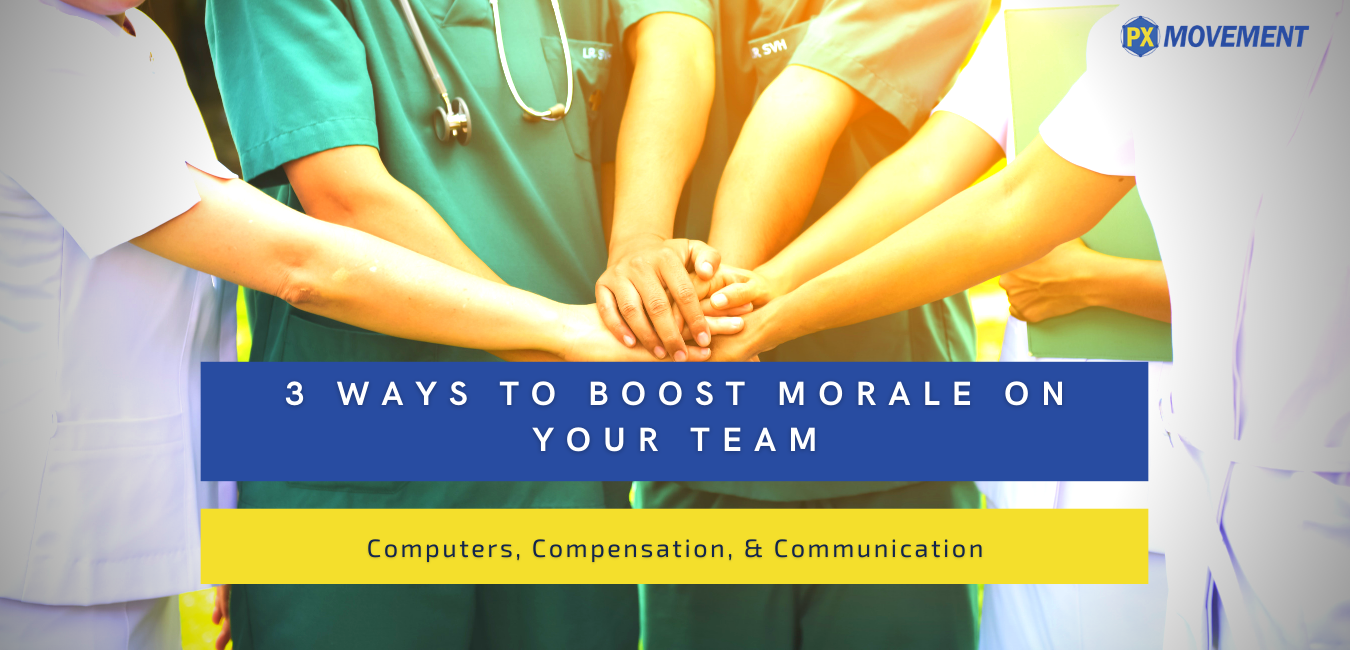With all the focus on improving the patient experience, here’s the truth: Behind every great customer experience is a team that is dedicated, resourced and rewarded to make it happen.

Before looking to see where you can improve the experience of your patients – who are also your customers, let’s take a look at some common areas that affect the overall employee experience and, if done poorly, can result in poor morale.
1. Computers
This device is the main tool most employees use to do their work or record information relevant to patient encounters. When was the last time everybody got a new computer? Processors that are slow, software that is expired, and keyboards that are clunky all slow down performance. Forcing employees to put up with this sends a message that you don’t place the same emphasis on efficiency of their work as perhaps your own as the leader and owner. And, I’m betting you wouldn’t tolerate using old and crappy hardware yourself.
2. Compensation
Does good compensation come when you are successful, or do you succeed because you pay your people well? Beyond a certain point, money does not lead to greater happiness or job satisfaction. Research by social psychologist Herzberg showed that it’s not a motivator but rather a hygiene factor, meaning that it can reduce dissatisfaction. This is where you need to pay attention and make sure base compensation is competitive for your area across the board. You would also be wise to develop incentive programs based on improvements in patients’ WTR (willingness to recommend) as well as improvements in revenue and profitability. And, these need to include the entire team and not just those responsible for “selling” services.
3. Communication
This one seems so obvious but easily slips out of control. Solid two-way communication is a must in organizations of every size and needs to be managed and cultivated with the same rigor placed on the daily schedule or quarterly financials.
Do you know how your employees view working in your practice? If not, then it’s time to ask. You can do this through anonymous surveys to gain an understanding of your employees’ willingness to recommend your practice as a place to work. If you approach this honestly — meaning that you want to get to the truth — you will learn the strengths and weaknesses that are affecting team morale.
If you are willing to invest in improving areas you identify as gaps, then you are on the path to closing them and building a team that can take you to the promised land of designing and delivering an exceptional experience for your patients!

